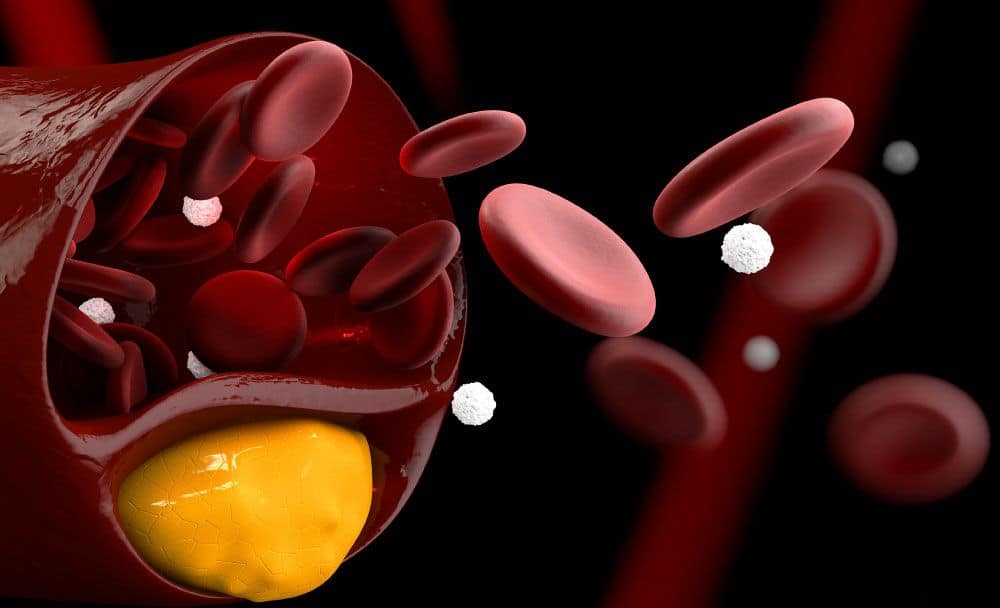Hypercholesterolemia, also known as high cholesterol, is a medical condition characterized by an elevated cholesterol level in the blood. It is a significant health concern and one of the primary causes leading to mortality among middle-aged and older adults. Cholesterol is of two types, high density and low-density classes, and Hypercholesterolemia is one of the common risks for many heart diseases. [1]
High cholesterol results from alterations in lipoprotein metabolism that, in turn, lead to high total cholesterol, LDL-C or triglycerides, and low HDL-C, all of which can result in multiple health problems, including cardiovascular diseases. [2] In this article, we will explore hypercholesterolemia definition, hypercholesterolemia symptoms, hypercholesterolemia causes, diagnosis, and treatment options for hypercholesterolemia.
What are the symptoms of Hypercholesterolemia?
Hypercholesterolemia typically does not cause any specific symptoms on its own. Often, individuals with high cholesterol levels are unaware of their condition until they experience complications such as heart disease, stroke, or other cardiovascular problems. These complications can manifest in various ways, including:
- Chest Pain
- High blood pressure
- Dyspnea
- High levels of cholesterol
- Altered mental status [4]
What are the causes of Hypercholesterolemia?
A combination of genetic and acquired reasons can cause hypercholesterolemia. The following are some common causes:
Poor diet:
Consuming saturated and trans fat-rich foods can significantly raise cholesterol levels and can be one of the major hypercholesterolemia causes. [3]
Lack of physical activity:
Regular exercise helps increase the levels of high-density lipoprotein (HDL) cholesterol, while a sedentary lifestyle adds to the ill effects of cholesterol in the bloodstream. [3]
Medicines:
Certain drugs like cyclosporine, thiazide, and diuretics have been known to be one of the hypercholesterolemia causes [3]
Genetics:
Familial hypercholesterolemia is an inherited condition that causes high cholesterol levels. It is caused by a gene mutation that affects the body’s ability to remove LDL cholesterol from the bloodstream. [3]
Underlying health conditions:
Certain health issues, such as diabetes mellitus, hypothyroidism, cholestasis, and nephrotic syndrome can contribute to high cholesterol levels. [3]
How can Hypercholesterolemia be diagnosed?
Hypercholesterolemia is diagnosed through a blood test called a plasma lipid profile, usually after a 10 to 12-hour overnight fast. This test measures various types of cholesterol and triglycerides in the blood. The key components of a lipid profile include: [3]
- Total cholesterol
- LDL cholesterol
- HDL cholesterol
- Triglycerides
How can Hypercholesterolemia be treated?
The treatment of hypercholesterolemia aims to lower LDL or Bad cholesterol levels and the risk of cardiovascular issues. The following strategies are commonly employed:
Lifestyle modifications:
Adopting a heart-healthy lifestyle is the first defense against high cholesterol. That includes consuming a balanced diet low in saturated and trans-fatty acids and rich in fiber, with fruits, vegetables, and fatty fish, maintaining a healthy body weight, exercising regularly, staying physically active and staying away from tobacco products. [3]
Medications:
In cases where lifestyle modifications are insufficient or when there is a significant risk of cardiovascular diseases, healthcare professionals may prescribe cholesterol-lowering medications. The most commonly prescribed drugs are HMG-COA reductase inhibitors, Bile acids sequestrants, Activated lipoprotein lipase, Inhibit lipolysis and triglyceride synthesis, and cholesterol absorption inhibitors. [1]
Regular monitoring:
Individuals with hypercholesterolemia should undergo regular check-ups and lipid profiles to monitor their cholesterol levels and adjust treatment.
Other medications:
In some cases, additional medications such as cholesterol absorption inhibitors, bile acid sequestrants, or PCSK9 inhibitors may be prescribed to lower cholesterol levels further. [3]
FAQs
- What is the best Ayurvedic treatment for hypercholesterolemia icd 10?
Some of the best treatments for hypercholesterolemia icd 10 include:
1. Triphala Kwatha: Used as a combination of Triphala- Haritaki, Bibhitaki, and Amalaki
2. Madhu-udaka: This is a warm water concoction mixed with honey
3. Ushana Manda: This is a liquid preparation in the form of thin gruel where rice is processed several times in water and a great solution for hypercholesterolemia icd 10
4. Chayadi Churna: This is a powdered preparation comprising shunti, jeeraka, pippali, and maricha, among others.
- What is pure hypercholesterolemia icd 10?
Pure hypercholesterolemia icd 10 refers to a situation where a genetic anomaly causes high cholesterol levels. It is believed, as per the Familial Hypercholesterolemia Foundation, that about 1 in 250 people in the world have pure or familial hypercholesterolemia.
- What is the difference between hypercholesterolemia icd 10 and hyperlipidemia?
Hyperlipidemia refers to a condition when your blood has above normal lipid (fat) levels.. These include several types of lipids, including triglycerides. However, hypercholesterolemia icd 10 is when you have above normal LDL or total cholesterol in your blood but it does not include triglycerides.
Conclusion
Hypercholesterolemia is a common condition that may lead to severe complications if left untreated. By adopting a healthy lifestyle, making dietary changes, and, if necessary, taking prescribed medications, individuals with hypercholesterolemia can effectively manage their cholesterol levels and lower the risk of strokes and cardiac issues. Regular check-ups and monitoring are crucial to ensuring optimal cholesterol control and overall cardiovascular health.
Disclaimer: This article is written from a health and wellness perspective and is not medical advice. Kindly seek the help of a certified medical practitioner before initiating any treatment.



















